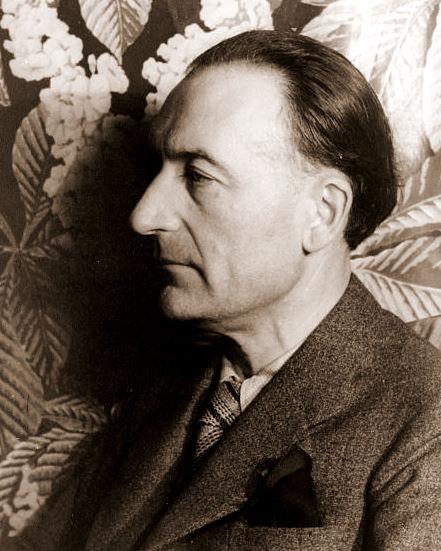<Back to Index>
- Immunologist Albert Bruce Sabin, 1906
- Writer Louis Henri Jean Farigoule (Jules Romains), 1885
- Elector Palatine Friedrich V, 1596
PAGE SPONSOR

Jules Romains, born Louis Henri Jean Farigoule (August 26, 1885 - August 14, 1972), was a French poet and writer and the founder of the Unanimism literary movement. His works include the play Knock ou le Triomphe de la médecine, and a cycle of works called Les Hommes de bonne volonté (Men of Good Will).
Jules Romains was born in Saint-Julien-Chapteuil in the Haute-Loire but went to Paris to attend first the lycée Condorcet and then the prestigious École normale supérieure. He was close to the Abbaye de Créteil, a utopian group founded in 1906 by Charles Vildrac and René Arcos, which brought together, among others, the writer Georges Duhamel, the painter Albert Gleizes and the musician Albert Doyen. He received his agrégation in philosophy in 1909.
In 1927, he signed a petition (that appeared in the magazine Europe on April 15) against the law on the general organization of the nation in time of war, abrogating all intellectual independence and all freedom of expression. His name on the petition appeared with those of Lucien Descaves, Louis Guilloux, Henry Poulaille, Séverine... and those of the young Raymond Aron and Jean-Paul Sartre from the École normale supérieure.
During World War II he went into exile first to the United States where he spoke on the radio through the Voice of America and then, beginning in 1941, to Mexico where he participated with other French refugees in founding the Institut Français d'Amérique Latine (IFAL).
A writer on many varied topics, Jules Romain was elected to the Académie Française in 1946, occupying chair 12 (among the 40 chairs in that august academy). In 1964, Jules Romains was named citizen of honor of Saint-Avertin. Following his death in Paris in 1972, his place, chair 12, in the Académie Française was taken by Jean d'Ormesson.
Jules Romains is remembered today, among other things, for his concept of Unanimism and his cycle of novels in Les Hommes de bonne volonté (The Men of Good Will),
a remarkable literary fresco depicting the odyssey over a quarter
century of two friends, the writer Jallez and politician Jerphanion,
who provide an example in literature of Unanimism.
Romains originally considered unanimism to mean an opposition to individualism
or to the exaltation of individual particularities; universal sympathy
with life, existence and humanity. In later years, Romains defined it
as connected with the end of literature within "representation of the
world without judgement", where his social ideals comprise the highest
conception of solidarity as a defense of individual rights.
The Red Envelope catalog company, in their 2007 Holiday catalog, surprisingly featured Les Createurs on the cover in a photograph, showing a female model playfully frustrated with her husband, a male model posing as a detached intellectual, half - heartedly helping her to decorate the Christmas tree, while his attention is focused on reading Les Createurs.